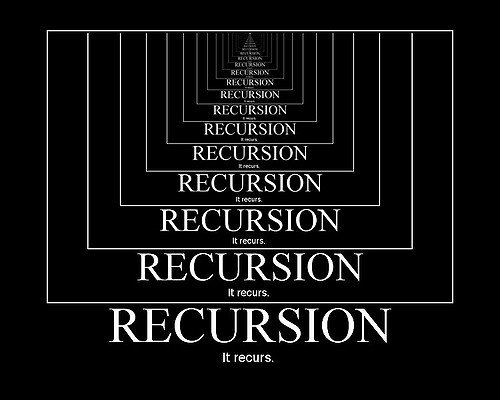The Infinite Borges, Part 1
If you haven't read The Garden of Forking Paths, or it has been a while, I highly recommend you read it first! I don't want to spoil it for you and it's not too long, I promise! Check it out on the Internet Archive
.jpg)
Jorge Luis Borges, Public Domain.
Reading the tales of Jorge Luis Borges, one is thrust unsuspecting into realms of literature and mythology, fate and philosophy. With spellbinding prose, Borges induces his readers to become lost in his literary labyrinths, and participate with him in their continual creation. Eager to journey into unexplored psychological dimensions, he entices the reader to join him that they may together ponder the great unanswerable questions; the paradox that is the heart of every Borges tale. Though each of his superbly crafted stories offers its own unique richness, they have common integral elements, through which he works his allegorical alchemy. These elements include his extensive knowledge of world literature, his obsession with endless mazes and infinite loops, and his recurring themes of time and fate. Using examples from Borges’ short story “The Garden of Forking Paths,” these common threads will be explored. Since Borges invested so much of himself into his writing, a look at the author himself will prove insightful to a study of his recurring literary themes.

Torley. nps.govflickr
Borges said that he was “neither a thinker nor moralist, but simply a man of letters who turns his own perplexities - and that respected system of perplexities we call philosophy - into the forms of literature (Merrell 113). He describes himself as “infested with literature… an ardent lover of words and… of the act of reading itself” (Merrell 123). The act of reading, he believes, should open up new realms of the mind, and intimately connect the reader with both the author and with the literary tradition they build upon. To achieve these aims in his own works, Borges imbues them with layers of meta-fiction: passages which self-consciously address the devices of fiction. “The Garden of Forking Path’s contains many such meta-fictional elements, including direct references to Goethe, Liddell Hart’s History of World War I, the annals of Tacitus, and the Chinese classic Hung Lu Meng. The focal point of the story is an ancient manuscript that shares the name of the story itself, “The Garden of Forking Paths.” By the tale’s conclusion it is unclear whether the meta-fictional “Garden” proceeds from the fictional, or the other way round. As Floyd Merrill posits in Unthinking Thinking, Borges delights in fusing dummy authors with existing ones, mixing fictional characters with real people, and juxtaposing imaginary books, places and times with historical ones” (xiv). Through this manner the prose seems to acquire a separate reality which, according to critic Karen Seiber, “leaves the reader in a world that is created by the mind of the individual reading the text, who then creates the text as universe” (200). Borges also desires the reader to find more in his stories than he originally intended, and to share with him in the processes of creation and reflection. A book is thing among things, a volume lost among the volumes that populate the indifferent Universe, until it meets its reader, the person destined for its symbols,” Borges states. “What then occurs is that singular emotion called beauty, that lovely mystery which neither psychology nor criticism can describe” (Borges, Prologues 511).
Check out Part 2 here.
Works Cited
Borges, Jorge Luis. “Borges and I.” Labyrinths. Trans. Irby, James.
New York; New Directions, 1964. 197.
---. “The Garden of Forking Paths.” Literature. Trans. Ed DiYanni, Robert.
New York: McGraw Hill, 2008. 269-9.
---. “A History of Eternity.” Selected Non-fictions.
New York: Penguin, 1999. 123.
---. “A New Refutation of Time.” A Personal Anthology.
Trans.Kerigan, Anthony. New York: Grove, 1967. 48-57.
---”Prologues to a Personal Library.” Selected Non-fictions.
New York: Penguin, 1999. 511.
Merrill, Lloyd. “Unthinking Thinking: Jorge Luis Borges, Mathematics, and the New Physics.”
West Lafayette: Purdue University Press, 1991.
Seiber, Shaon Lynn. “Time, Simultaneity, and the Fantastic in the Narrative of Jorge Luis Borges.” Romance Quaterly. 51.3 (Summer 2004): 200-211
Yarrow, Ralph. “Irony grows in my Garden: Generative Processes in Borges’ ‘The Garden of Forking Paths,’.” The Fantastic in World Literature and the Arts. Ed Donald E. Morse Greenwood Press, 1987. 73-86.
@pinkspectre It's great to read your article, I think Jorge Luis Borges, Public Domain He was a great man, his writing filled with emotion
Thanks!
@pinkspectre What for you brother ?? It's a steemit community, we'll help one another, it's our duty, what do you think Sir????
To listen to the audio version of this article click on the play image.

Brought to you by @tts. If you find it useful please consider upvoting this reply.
borges some of the great Argentine writers of the 20th century I have never read his books but if you listen to many stories of Luis Borges through my grandfather.
He is amazing! My wife finds him pretentious, but she can't deny he is a great writer.
you're right